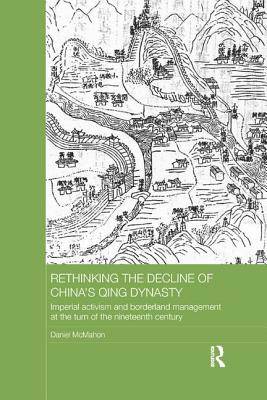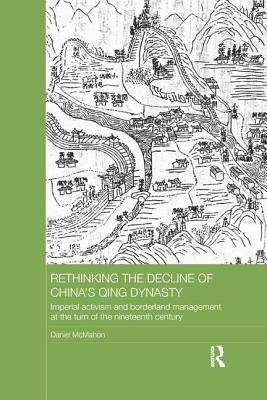
- Afhalen na 1 uur in een winkel met voorraad
- Gratis thuislevering in België vanaf € 30
- Ruim aanbod met 7 miljoen producten
- Afhalen na 1 uur in een winkel met voorraad
- Gratis thuislevering in België vanaf € 30
- Ruim aanbod met 7 miljoen producten
Rethinking the Decline of China's Qing Dynasty
Imperial Activism and Borderland Management at the Turn of the Nineteenth Century
Daniel McMahonOmschrijving
The many instances of regional insurgency and unrest that erupted on China's borderlands at the turn of the nineteenth century are often regarded by scholars as evidence of government disability and the incipient decline of the imperial Qing dynasty. This book, based on extensive original research, argues that, on the contrary, the response of the imperial government went well beyond pacification and reconstruction, and demonstrates that the imperial political culture was dynamic, innovative and capable of confronting contemporary challenges. The author highlights in particular the Jiaqing Reforms of 1799, which enabled national reformist ideology, activist-oriented administrative education, the development of specialised frontier officials, comprehensive borderland rehabilitation, and the sharing of borderland administration best practice between different regions. Overall, the book shows that the Qing regime had sustained vigour, albeit in difficult and changing circumstances.
Specificaties
Betrokkenen
- Auteur(s):
- Uitgeverij:
Inhoud
- Aantal bladzijden:
- 212
- Taal:
- Engels
- Reeks:
Eigenschappen
- Productcode (EAN):
- 9781138573871
- Verschijningsdatum:
- 12/10/2017
- Uitvoering:
- Paperback
- Formaat:
- Trade paperback (VS)
- Afmetingen:
- 156 mm x 233 mm
- Gewicht:
- 452 g

Alleen bij Standaard Boekhandel
Beoordelingen
We publiceren alleen reviews die voldoen aan de voorwaarden voor reviews. Bekijk onze voorwaarden voor reviews.











